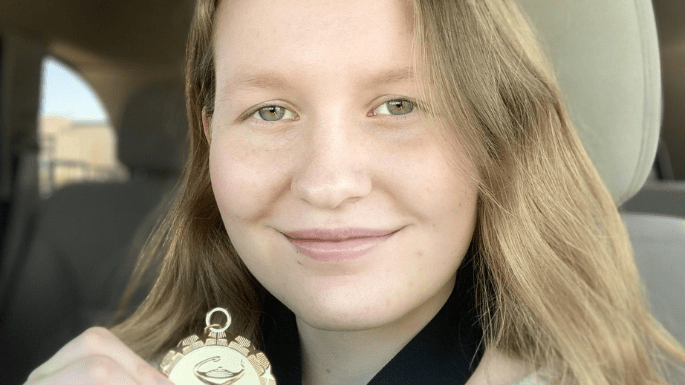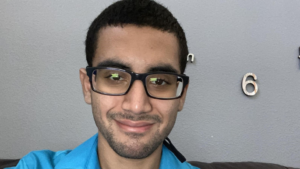This guest post is by Addison Barnes, a young woman on the autism spectrum who was accepted into the University of Oklahoma. Addison is applying for the Spring 2021 Making a Difference Autism Scholarship via the nonprofit KFM Making a Difference started by me, Kerry Magro. I was nonverbal till 2.5 and diagnosed with autism at 4 and you can read more about my organization here.
I hope you can support my nonprofit like I’m trying to support these students with scholarship aid for college. Learn more on how you can help our cause with a small donation (just asking for $3 today, equal to your daily cup of coffee) here.
“He has trouble understanding you.”
Those were the words that made me realize I was different from everyone else.
If my father couldn’t understand me, then who could? I had always struggled with maintaining friendships, knowing certain social cues, and generally how to behave in certain situations and settings. I saw everything differently thanks to my PDD-NOS diagnosis (which we had simplified to Aspergers) that I failed to understand what that truly meant at such a young age. At the time, I didn’t realize that some of the challenges led to me being alienated from my peers. As I matured and realized how everyone perceived me though, I began to fall into a pit of self-deprecation.
In junior high I saw other kids being picked on in class, in the halls, and out during recess. I was too afraid to stand up for them or for myself, even if I was in the right to do so. Because of that, I ending up leaving my neurodivergent sphere, or at least tried too. I desperately engaged in the act of masking in order to not get picked on too, but even then, I still managed to stick out because of my IEP. In 6th grade, I went to special lunch periods to be in a group of kids who were similarly diagnosed with Autism and Aspergers but refused to talk to anyone there, and sometimes even skipped just so I could get early lunch and get the best table in the cafeteria for the small circle of people I managed to befriend.
In 7th grade, I was forced to skip one of my favorite classes, Choir, so I could be put in a special class where I would have to work with people who had the same diagnoseses as me. It had good intentions, but I hated it. 8th grade was the year that everything got better— no longer was I forced into taking classes I despised, but instead was to go to a clinical psychologist doctor. We started with all the stereotypical stuff, explaining how Aspergers worked.
But despite the therapy, I was still self-loathing of my diagnosis. I didn’t want to be seen as how people sometimes stereotype autism: Someone incapable of taking care of themself, doomed to be alone, and have no friends. It took years of hard work and many sessions for me to let go of this self-loathing, and I owe most of it to a doctor who helped me in ways I had never dreamed of. The change was so gradual I often look back at my younger self with disbelief, unable to pinpoint where it began.
I still have trouble in social situations, though. I still make mistakes and have to work harder to understand myself, how I can do better, and how not to repeat the same mistake. However, I’ve accepted that part of myself, and embrace it, because, without it, I wouldn’t be where I am today.
I’m disgusted with how I acted towards my peers who had similar diagnoses as me. Some I have managed to apologize to, but I want to help children who grew up facing the same struggles that I faced to ensure that this small facet of bullying does not continue. I want to be like who that doctor was to me, someone who can help others navigate through any life obstacles they face. Show them that they shouldn’t resort to self-loathing and can learn to love themselves and others. Even if I am being over-ambitious, helping at least one person would be enough.

Follow my journey on Facebook, my Facebook Fan Page, & Instagram!
My name is Kerry Magro, a professional speaker and best-selling author who is also on the autism spectrum that started the nonprofit KFM Making a Difference in 2011 to help students with autism receive scholarship aid to pursue a post-secondary education. Help support me so I can continue to help students with autism go to college by making a tax-deductible donation to our nonprofit here.














